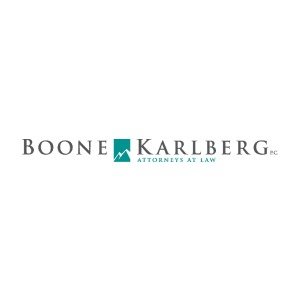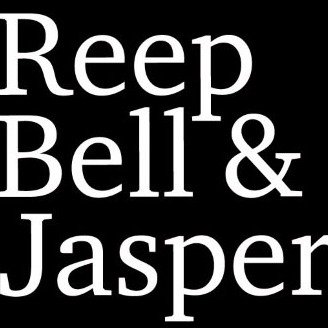Best Mortgage Lawyers in Montana
Share your needs with us, get contacted by law firms.
Free. Takes 2 min.
Free Guide to Hiring a Real Estate Lawyer
Or refine your search by selecting a city:
List of the best lawyers in Montana, United States
About Mortgage Law in Montana, United States
Mortgage law in Montana governs the legal relationship between homeowners, buyers, lenders, and other parties involved in real estate financing. A mortgage typically involves borrowing money to purchase real estate, with the property itself serving as collateral for the loan. Montana is considered a lien theory state, meaning the homeowner holds the title to the property while the mortgage lender has a lien as security. The body of mortgage law in Montana covers topics such as loan origination, interest rates, foreclosures, refinancing, and the rights and obligations of all parties involved. Understanding these laws is crucial if you are buying, selling, refinancing, or facing foreclosure on a property in Montana.
Why You May Need a Lawyer
Seeking legal advice can be essential in a variety of mortgage-related situations. Common scenarios include:
- Purchasing or selling a home and unsure about mortgage contract terms
- Experiencing difficulty making mortgage payments and concerned about foreclosure
- Dealing with disputes over mortgage terms, interest rates, or payment schedules
- Facing issues with mortgage fraud or predatory lending practices
- Needing to modify, refinance, or transfer an existing mortgage
- Challenging the accuracy of mortgage documents or the lender’s adherence to legal procedures
- Understanding your rights as a co-borrower, cosigner, or inheritor of a mortgaged property
Mortgage lawyers provide guidance, draft and review documents, represent you in negotiations and court, and help protect your interests throughout the process.
Local Laws Overview
Montana's mortgage laws include several key provisions that both borrowers and lenders must understand:
- Montana follows lien theory, meaning borrowers hold the legal title and lenders hold a lien rather than title to the property.
- Mortgages and deeds of trust are both commonly used as security instruments in Montana. The procedures for foreclosures may differ based on the security instrument.
- Foreclosure in Montana is generally nonjudicial, meaning the process can occur outside of court when a deed of trust contains a power-of-sale clause. However, judicial foreclosure is available for mortgages without such a clause.
- Montana law requires lenders to provide proper notice to borrowers before initiating foreclosure proceedings. This includes notice of default and a right to cure the default within a specified period.
- There are specific consumer protection statutes governing interest rates, disclosures, and lending practices to prevent predatory lending.
- Montana law provides redemption rights that allow homeowners to reclaim their property within a certain period after a foreclosure sale in some circumstances.
Staying informed about these laws helps protect borrowers and ensures lenders follow the legal process in the event of dispute or default.
Frequently Asked Questions
What is the difference between a mortgage and a deed of trust in Montana?
Both are used to secure a loan with real property, but a mortgage involves only two parties (borrower and lender), while a deed of trust involves three (borrower, lender, and trustee). A deed of trust allows for nonjudicial foreclosure, typically faster than foreclosure on a mortgage without a power-of-sale clause.
How does foreclosure work in Montana?
Foreclosure can be nonjudicial if a deed of trust with a power-of-sale clause is used or judicial if a standard mortgage is used. In either case, borrowers receive notice and have time to cure the default before the property is sold.
Can I stop a foreclosure once it has started?
You may be able to stop foreclosure by paying the default amount plus costs before the sale date or by negotiating with your lender for a loan modification or repayment plan.
Do I have a right to redeem my property after foreclosure?
In some cases, Montana provides a redemption period that allows the former owner to reclaim the home by paying the outstanding amount, but rules differ based on the type of foreclosure and security instrument used.
Are there protections against predatory lending in Montana?
Yes, Montana has specific rules about interest rates, disclosures, and lending practices meant to protect consumers from predatory or deceptive mortgage lending.
What disclosures must lenders provide in Montana?
Lenders must provide a range of disclosures, including the loan’s terms, fees, interest rate, and other relevant financial information, as mandated by federal and state law.
Can I refinance my mortgage if I am behind on payments?
Refinancing while behind on payments can be challenging, but options may be available through your lender or state-sponsored programs designed to help struggling homeowners.
How do I challenge an error in my mortgage documents?
If there is an error, contact your lender or servicer in writing. You may also need to file a complaint with state regulators or seek legal assistance to resolve the issue.
What are my obligations if I inherit a property with a mortgage?
If you inherit a mortgaged property, you may be responsible for ongoing mortgage payments. Consult with a lawyer to understand your options and obligations under Montana law.
Do I need a lawyer to buy or sell property in Montana?
It is not legally required, but having a lawyer can help with contract review, negotiations, and resolving title or mortgage issues, helping ensure the transaction goes smoothly.
Additional Resources
If you need more information or assistance with a mortgage issue in Montana, consider the following resources:
- Montana Department of Administration - Division of Banking and Financial Institutions: Regulates mortgage lenders and provides consumer resources.
- Montana Attorney General’s Office: Investigates mortgage fraud and consumer complaints.
- Montana Legal Services Association: Offers free or reduced-cost legal help for qualifying residents dealing with mortgage, foreclosure, or housing issues.
- United States Department of Housing and Urban Development (HUD): Provides housing counseling and foreclosure avoidance programs.
- Local county recorder’s office: For records related to mortgage filings and foreclosure notices.
Next Steps
If you believe you need legal assistance regarding a mortgage in Montana, consider the following steps:
- Gather all relevant documents, including your loan agreement, payment history, correspondence with your lender, and any foreclosure notices.
- Write down your questions and concerns to discuss with a lawyer.
- Contact a lawyer who specializes in real estate or mortgage law. Many lawyers offer initial consultations, which can help you determine the best course of action for your situation.
- Explore free or low-cost legal services if you have limited financial resources.
- Stay updated on deadlines, especially if you are facing foreclosure or have received legal notices.
Taking prompt action and seeking qualified legal advice can help protect your rights and your investment in your home or property.
Lawzana helps you find the best lawyers and law firms in Montana through a curated and pre-screened list of qualified legal professionals. Our platform offers rankings and detailed profiles of attorneys and law firms, allowing you to compare based on practice areas, including Mortgage, experience, and client feedback.
Each profile includes a description of the firm's areas of practice, client reviews, team members and partners, year of establishment, spoken languages, office locations, contact information, social media presence, and any published articles or resources. Most firms on our platform speak English and are experienced in both local and international legal matters.
Get a quote from top-rated law firms in Montana, United States — quickly, securely, and without unnecessary hassle.
Disclaimer:
The information provided on this page is for general informational purposes only and does not constitute legal advice. While we strive to ensure the accuracy and relevance of the content, legal information may change over time, and interpretations of the law can vary. You should always consult with a qualified legal professional for advice specific to your situation.
We disclaim all liability for actions taken or not taken based on the content of this page. If you believe any information is incorrect or outdated, please contact us, and we will review and update it where appropriate.
Browse mortgage law firms by city in Montana
Refine your search by selecting a city.














